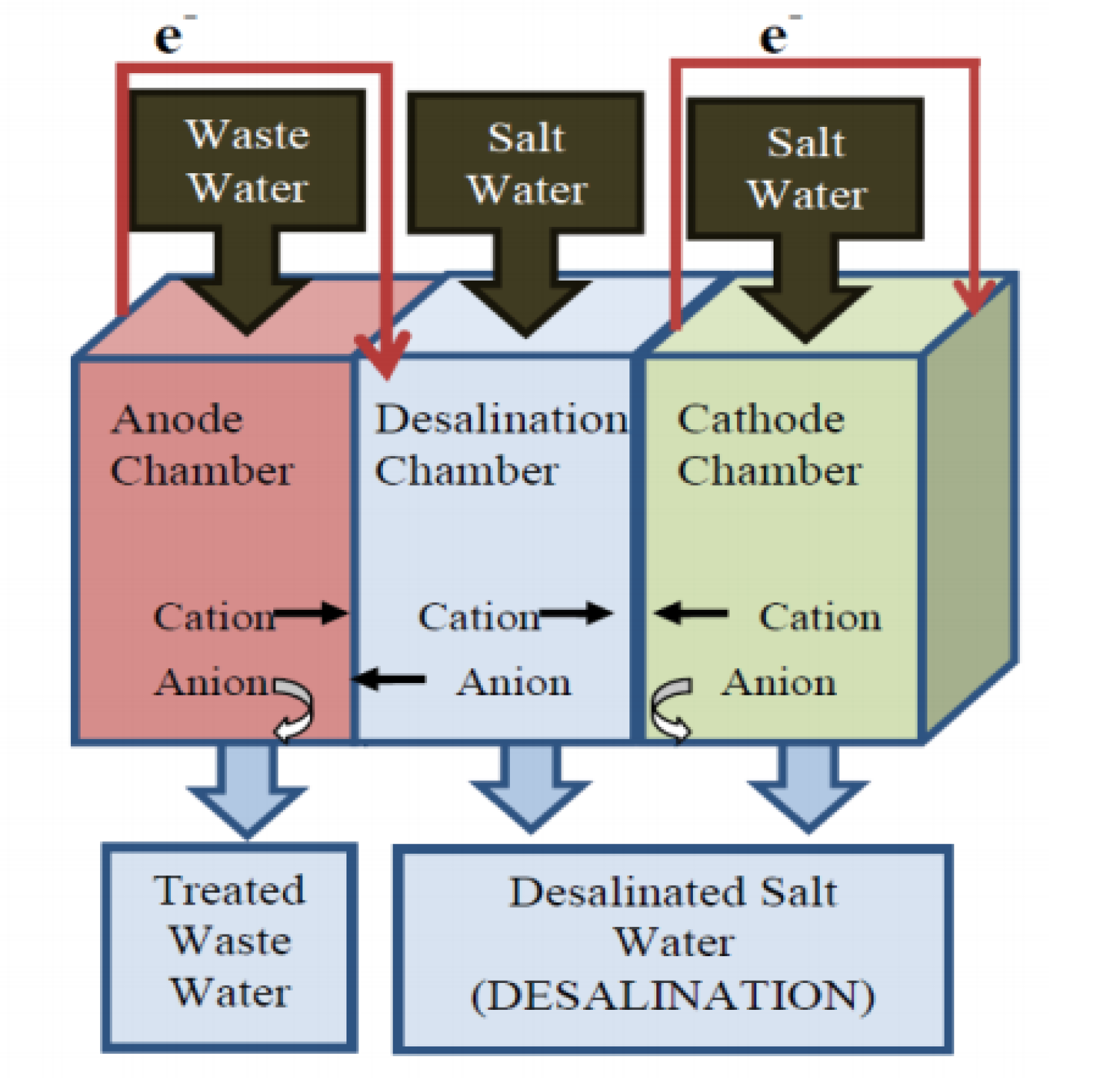Microbial Desalination for Simultaneous Wastewater Treatment, Electricity Production, and Desalination

Background
Current desalination processes are energy intensive. Microbial desalination cells (MDCs) are a promising technology to simultaneously treat wastewater, desalinate saline water, and produce renewable energy such as electricity or hydrogen gas. MDCs use the electrical current generated by microbes to simultaneously treat wastewater, desalinate water, and produce bioenergy. However, current MDC systems transfer salts to the treated wastewater and affect wastewater beneficial use.
Technology
Researchers at the University of Colorado Boulder have developed a new microbial capacitive desalination cell (MCDC) to simultaneously treat wastewater, desalinate water, and produce bioenergy while mitigating the salt migration and pH fluctuation problems facing current state-of-the-art cells and also improving the efficiency of capacitive deionization.
Using high surface area electrode assemblies for capacitive adsorption of ions, the MCDC increases desalination efficiency by 7–25 times over capacitive deionization. It is also the first reactor to remove ions from the anode, cathode, and desalination chamber, which enhances the reactor capability in simultaneous salt management, wastewater treatment, and energy production. The nearly full recovery of salt during MCDC regeneration also makes salt production possible. Additionally, biofouling and scaling, which are major concerns for desalination reactors, can be mitigated to improve the long-term operation of the MCDC system.
Further Details:
- C. Forestal, et al., “Sustainable desalination using a microbial capacitive desalination cell” Energy Environ. Sci., 2012, 5, 7161.
- C. Forestal, et al., “Microbial capacitive desalination for integrated organic matter and salt removal and energy production from unconventional natural gas produced water” Environ. Sci.: Water Res. Technol., 2015, 1, 47.
Key Results
- MCDC reactors have been scaled from lab to trailer scale demonstration.
- Different real wastewater and saline water streams such as industrial and municipal wastewater and oil/gas produced water have been tested.
- Pilot scale MCDC was energy-positive with 100 W/m3 electricity generation.
- System can be modular with flexible treatment capacity.
Benefits
- Allows for treatment of complex wastewater and saline water streams through co-removal of organics and salt
- Portable, scalable, and allows for salt, water, and energy recovery
Opportunity
This technology is available for exclusive or non-exclusive licensing.
Nicole Forsberg: nicole.forsberg@colorado.edu
The Newsroom
For marketing and communication inquiries or news tips, contact Daniel Leonard, senior marketing and communications specialist for Venture Partners at CU Boulder.
For media inquiries, please visit colorado.edu/news/formedia.


